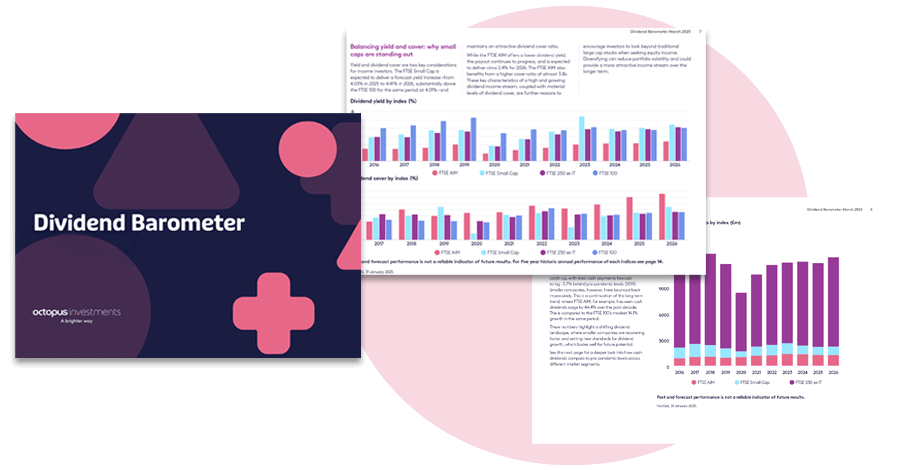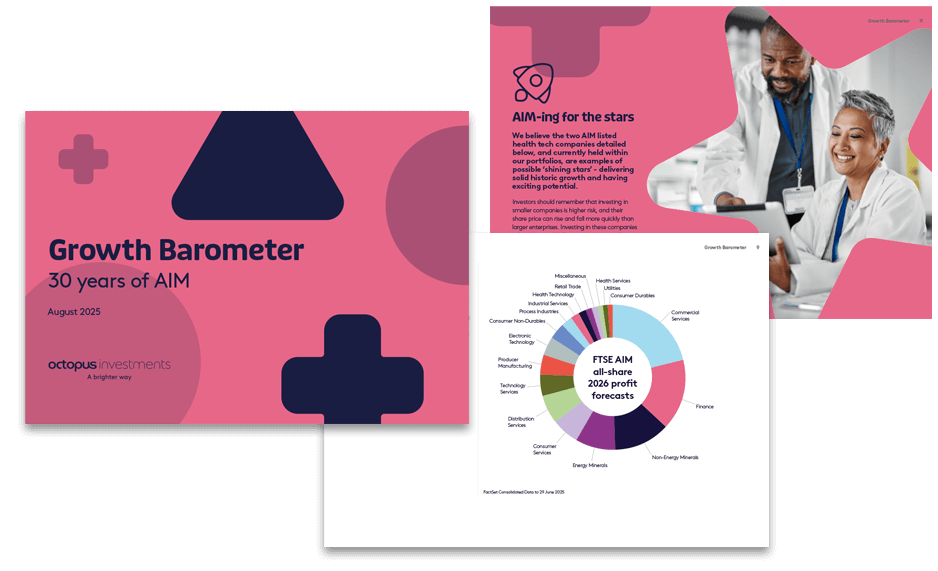You may have a great relationship with your client. But who’ll advise your clients’ beneficiaries? Financial advisers share the benefits of intergenerational planning and the impact for your business.
About 30 years ago, the sudden and unexpected death of a client sprung Alan Marks – at the time a financial adviser – into action.
It was an important client and Alan worked overtime to get everything in order for their loved ones, including valuable life policies and death in service benefit.
Alan had two things on his mind: to fulfil his duty to the client, and to advise his client’s beneficiaries, who had inherited a significant sum overnight.
Things didn’t go quite to plan. “I’ll never forget it. I worked closely with the family, and I worked really hard,” says Alan Marks. “But another adviser got in and did a sales pitch on the widow and children. I missed out and I’d done a really great job.”
Here’s how to make the most of the intergenerational opportunity.
1. Start conversations about wealth transfer early
Alan had worked closely with the family and worked really hard. But he learned that he’d engaged with the beneficiaries too late. The lesson?
“If you haven’t already built a relationship when the time comes, they won’t care about what you’ve done for the client.”
This was a shaping experience in Alan’s career in the advice industry. Nowadays, he is Managing Director at Harrison Spence, buying and selling advice practices. Intergenerational planning is now high on his agenda when advice firms turn up looking to buy or sell a book.
The question Alan and his team ask is, ‘Are you doing later life planning with all your clients?’ If I get, ‘What do you mean by that?’ I know they’re not. And if I get, ‘Yes of course, we do trusts, wills, and we meet with the children and the grandchildren, and we talk about moving assets down’, that’s when I know we’ve got a client selling a business with top value.”
2. Add value to your business with intergenerational planning
An ageing client bank devalues a business, unless you can introduce something you haven’t done – and that something is intergenerational advice.
As Alan explains, “If someone looks at a book and sees ageing clients, they’ll start thinking they might lose 15% of those people. Good practice is to do the intergenerational work. Meet the kids, meet the grandchildren, and build a relationship with your client’s family.”
“If you can do that with every client, then you help derisk the sale. If you haven’t, an acquirer is going to assume you’ve done nothing.
If you want to sell something, you get one chance to make a first impression. Make it look good.”
The cost of not planning ahead? According to Alan, “You could lose 15% to 20% of real value by not preparing and not spending the time.” Intergenerational planning is therefore a critical part of that long term preparation.
3. Engage your clients’ beneficiaries
Sunny Sonpal of Collective Financial Planning is one adviser who’s started to focus more on engaging with the next generation. He explained that he’d always had conversations within the network about generational planning. He explains, “Like many advisers, I understood it but never get round to doing it. You never have time, because you’re always chasing the last email and trying to get things organised.”
Circumstances changed that for Sunny. He explains that the pandemic was a gamechanger. They lost four clients to Covid and at the same time some of our older clients have begun to pass away naturally. This prompted them to take the time to reflect on the impact of this on their business.
“We had one client who passed away and his daughter, who had never engaged with me before, just took everything away. I thought, hang on a second, this is a new generation coming through and I don’t think they are fully engaged in financial services or fully understand it. Do we want to lose all the hard work we’ve done to another adviser or institution?”
Sunny realised that they needed to work with the beneficiaries a lot earlier. “I approach intergenerational planning very softly to begin with. And the reason for that is that we’re a young practice and our clients are mostly moving from their fifties to their sixties.”
“I say, look it’s important that we just have a conversation. Not just with you, but with some of the family members. Because we just want to make sure we’ve got everything right.”
“Now, it may cause a reaction, or it may not. But what I’ve found is the second time I’ve gone to see the client, it’s normally on the agenda.”
Sunny finds that when he engages with the beneficiaries, they pay a lot of attention. When they actually know what the wealth is they could inherit, they go away and do their research. That’s fine for him, because the more questions they ask, the more engaged he knows they are.
4. Don’t assume your beneficiaries will simply spend the money
One perceived barrier to advising the next generation is that a client’s children will likely spend a lot of what they inherit – paying down the mortgage, the new sports car on the drive, buying the dream holiday home. It’s true in some cases, but not all.
This is something of a myth that Kirsty Coldicott of KLC Financial was keen to dispel.
“Don’t get me wrong, we have lost funds when the children want to spend the money on other things,” explains Kirsty. “It depends on the age of the beneficiary.”
“But most beneficiaries in my experience feel a real sense of responsibility to that inheritance. They don’t want to blow it out of respect for the individual that left it to them. So I’ve found in many cases that beneficiaries are more inclined to invest, because they want to use their inheritance for their future, rather than doing the individual a disservice by spending it on a depreciating asset.”
5. Adapt to younger generations
It goes without saying that younger generations have different needs, attitudes, and wants than their parents.
Dr Eliza Filby is a leading generations expert and she believes there are some key considerations advisers can keep in mind to have the best chance of retaining assets when wealth passes down the generations.
Eliza offers her three key tips for Advisers when considering their current offering to younger clients:
- Does your service and advice feel bespoke? You have a generation of younger clients who are used to and expect customised experiences and service. Is it bespoke in the communication you’re giving, in the delivery, in the wording, in the documents?
- Make sure your advice is gender neutral. We really need to banish from our minds the ideas and stereotypes around what a female life path looks like and a male life path.
- And the third thing is whether you are educationally focused. What stands out from surveys of younger clients and younger people is their insecurity about their financial knowledge. Are you upskilling them? Are you teaching them? And if so, how are you doing that? Remember, these kids are used to TED Talks. They’re used to high-end learning experiences.
6. Foster family conversations
Eliza is passionate about how studying generational differences can lead to better business outcomes.
“You may think what’s this generational analysis got to do with me and my advice business? Well, I would urge you to consider the way the advice industry has been living off the baby boomer buck, and particularly the male baby boomer buck for a long time.”
“You’re getting much more equality within marriages. Women are making much more of the big financial decisions. Children are having a much greater say in their parents’ financial decisions.”
Perhaps these social and economic changes are already impacting advisers. Research from Schroders found that 70% of women inheriting wealth change advisers within a year of their partner’s death.
Although Kirsty has not experienced this issue personally, she says she can understand why this might be the case. If the husband has dealt with another financial adviser and the finances have been very much dealt with by the male, then maybe they just don’t have any relationship with the spouse or the children. She also points out that she’s had wealthy widows approach her for advice but didn’t interrogate why they didn’t stick with their original financial planner.
Kirsty advises to try and bring everybody in, even where clients come very much as an individual. She always asks about the partnership and asks permission to engage with their partner and if they share finances in any way shape or form. That way you can give the most viable advice.
It’s not always about a strategy for Kirsty, sometimes it’s about showing that human touch. She shares an example of a male client who came to her as an individual. On learning that his wife was turning 50, they sent her a small gift.
“We’re not this faceless entity that just deals with the husband, where the widow and children have no idea who to engage with.”
The benefit for Kirsty’s business? “We’re not losing client assets because we are engaging with the families regularly and that protects us.”
One of the best ways advisers can bring that engagement is through estate planning, because it’s naturally a family conversation.
Learn more:
Watch our webinar Retaining assets in the Wealth Transfer
Learn more about intergenerational planning.
Available on demand now.

Issued by Octopus Investments Limited, which is authorised and regulated by the Financial Conduct Authority. Registered office: 33 Holborn, London, EC1N 2HT. Registered in England and Wales No. 03942880. Issued: April 2022. CAM011954









